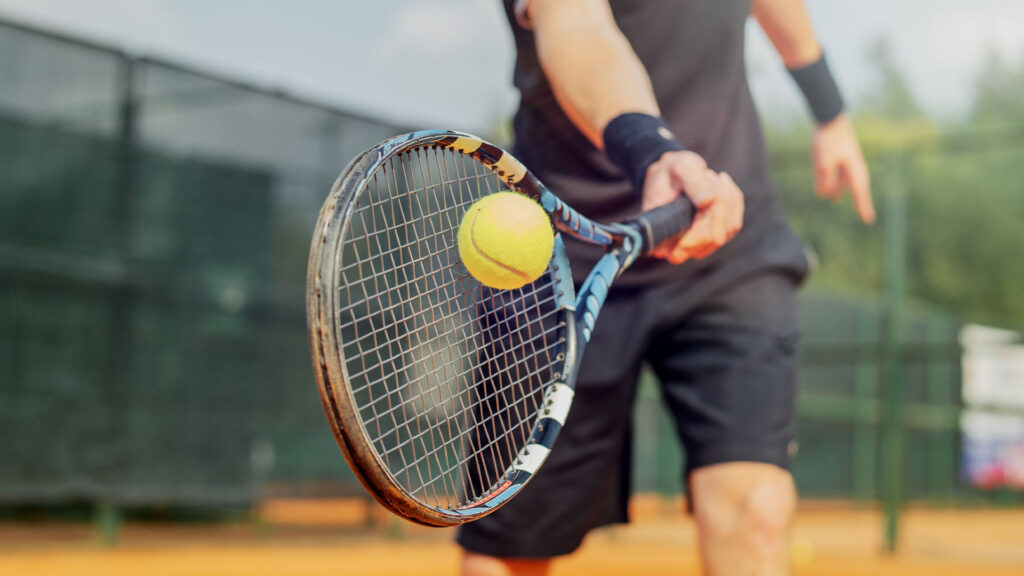
For those nights you struggle to fall asleep at night, melatonin can be a helpful supplement to aid in a good night’s rest. However, Greek tennis player, Stefanos Tsitsipas, said in an interview with the Associated Press, that he regrets taking the popular sleeping pill before his major major defeat against Carlos Alcaraz at the French Open on Tuesday, June 6.
Alcaraz displayed his incredible talent on the Phillipe-Chatrier Court as he won the men’s single quarter final in 2 hours and 12 minutes in a series of sets of 6-2, 6-1, 7-6 (5). To provide an explanation for his unexpected performance in the Grand Slam tournament, he said that before the match at 8:30 p.m, Tsitsipas decided to take a quick nap with the help of the sleeping pill.
He said that melatonin would make him more energized for the match, thus perform better. Instead, he said it left him feeling drowsy in his slam against the 20-year-old opponent.
“One thing that I’m going to try to avoid in the future is (having) melatonin pills and naps before matches,” Tsitsipas told the AP, “because it clearly doesn’t seem to be working.”
This was not the first time for Tsitsipas to make the mistake of getting some z’s and taking melatonin before a match. He also followed a similar routine before his 2019 Paris match against Novak Djokovic. That match didn’t go so well for Tsitsipas. He ended up losing 6-1, 6-2.
For the future, he said he will avoid naps and melatonin before a match and instead focus on getting a full night’s rest to help with recovery time and competing in important matches. So, if melatonin is supposed to aid in sleep and feeling energized, why did it have the adverse effect on Tsitsipas? We are here to tell you!
What is Melatonin?
You know it’s bedtime when your eyes start to slowly shut as you scroll through your phone or finish up a chapter in your book. That’s melatonin, your body’s natural sleep hormone working its magic. Melatonin is secreted by the pineal gland in our brain and helps our 24 hour “clock” known as the circadian rhythm.
During the day we produce less melatonin, while at night, the body knows to produce more when it gets dark out and it’s time to hit the pillowcase. However, some nights natural hormones might not work as well as we want it to. The sleeping aid dosage can be taken in the form of a tablet, capsule or lozenges that you can place under your tongue.
“Where we do routinely use melatonin in sleep medicine is for helping to shift the body’s circadian rhythm,” said Dr. Shelby Harris, director of sleep health at Sleepopolis. “We use tiny doses (1/2 to 1mg max!) at very specificity times multiple hours before bed to help gradually shift the body clock.”
Melatonin will not solve your sleeping problems permanently. It is only a temporary solution that will be the cure for your insomnia no matter how high the dose may be.
“People think that melatonin is a natural cure for insomnia but the reality is that there’s not a lot of data in support of this,” Harris said. “They also tend to take way too much of it. Anything more than 3mg is considered a hefty dose.”
Can Melatonin Affect Athletic Performance?
In a study, it was found that daily ingestion of melatonin among males might lead to a negative influence on exercise performance. Among participants in the study, 5mg or 8mg of melatonin was given to participants before 30 minutes of physical activity.
Taking a 5mg dose included some common side effects such as “increased psychomotor and cognitive performance, weariness, and excessive sleepiness.”
Contrary to Tsitsipas’s decision of taking melatonin before his match, the study suggests that melatonin should not be taken 30 minutes or more before if you plan on engaging in some athletic activities as it can impact the circadian rhythm.
Safe Consumption of Melatonin for Athletes
No matter what type of physical activity you might be taking part in, sleep is vital for matches on the court or a session in the gym. It might be tempting to take a quick nap with melatonin before you head to match on the tennis court or a gym session. This will possibly do more harm than good as your body’s internal clock will take over your body’s ability to perform athletically.
Some options for a better use of melatonin could include taking the recommended dosage hours before you go to sleep so your body can slowly adjust to its internal clock. Within this time frame, you should avoid engaging in any physical activity as your body begins to feel the effects of the supplement.
“In sleep medicine, we use very small doses of melatonin multiple hours before bed to help gradually shift the body’s clock (circadian rhythm) in people with delayed sleep phase disorder, jet lag syndrome, shift work sleep disorder, and occasionally for insomnia,” Harris added.
Also, since melatonin is not approved by the FDA, it is important to look at the dosages because each over the counter prescription might vary in ingredients and recommended dosages.
Overall, to perform your best athletically the most crucial priority is to prevent sleep deprivation to reap the benefits, such as increased cognitive function and heart health. Also, if melatonin doesn’t suit you, it could be helpful to try out some other natural remedies such as tart cherry juice and banana peel tea.
“Quality sleep is the foundation on which everything else is built- If you want to lose weight, improve your workouts, better your mental health, or increase your energy levels, better sleep can make accomplishing those things easier,” Harris said.
Sources
Souissi A, Dergaa I. An Overview of the Potential Effects of Melatonin Supplementation on Athletic Performance. Int J Sport Stud Hlth. 2021;4(1):e121714. https://doi.org/10.5812/intjssh.121714.




























